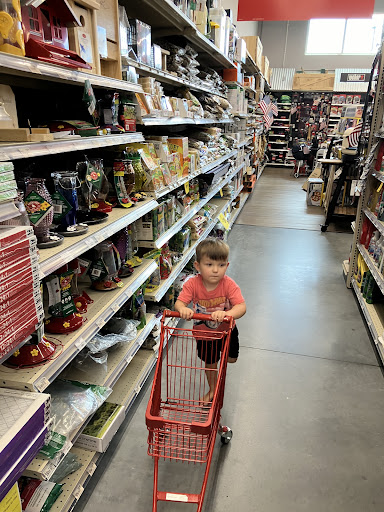Why Natural Gas Grills Are Revolutionizing Backyard Cooking
A natural gas grill offers the ultimate outdoor cooking experience with an endless fuel supply, instant ignition, and consistent heat control. Key advantages include:
- Continuous fuel supply: Never run out of gas mid-cookout.
- Cost-effective: Natural gas costs significantly less than propane over time.
- Eco-friendly: It burns cleaner than propane with fewer emissions.
- Convenient: No heavy tanks to refill or store.
- Consistent heat: Perfect temperature control for any dish.
Gas grilling epitomizes summer, with the appetizing aroma of food sizzling away. Whether searing steaks or slow-cooking chicken, natural gas grills deliver restaurant-quality results. The convenience of turning a knob for instant, controllable heat transforms outdoor cooking into pure enjoyment.
In Charleston’s coastal lifestyle, where outdoor entertaining is a year-round tradition, a reliable grill is essential. Natural gas grills eliminate the frustration of empty propane tanks and offer the precision serious grill masters demand.
The helpful team at Lowcountry Ace has guided countless Charleston homeowners in selecting the perfect natural gas grill. We have years of experience helping customers transform their patios into culinary destinations and understand what features deliver consistent, delicious results.
Natural Gas vs. Propane: The Ultimate Grilling Showdown
The biggest frustration for any grill master is running out of fuel mid-cookout. It’s a common problem with propane tanks, and it’s the main reason many Charleston homeowners are switching to natural gas grills. While both propane and natural gas offer excellent control, natural gas has clear advantages for most home grilling setups.
Convenience and Cost: A natural gas grill connects directly to your home’s gas line, providing a continuous, uninterrupted fuel supply. This eliminates the need to monitor fuel levels, lug heavy tanks for refills, or worry about running out of gas during a party. While professional installation is required, natural gas is significantly cheaper per BTU than propane. For families who grill often, the annual savings on fuel can be substantial.
Environmental Impact and Performance: Natural gas is a cleaner-burning fuel, producing fewer greenhouse gas emissions than propane, which aligns with preserving the Lowcountry’s beautiful environment. In terms of cooking, the delicious “grilled” flavor comes from vaporized drippings, not the fuel. Both fuels perform well, but natural gas often provides more consistent heat distribution, which is ideal for delicate items like local seafood.
Why Natural Gas Wins for Home Grilling
For homeowners with a gas line, the choice is clear.
- Continuous Fuel: Your grill is always ready to go, ensuring cookouts are never interrupted.
- Lower Fuel Costs: Enjoy significant long-term savings, as natural gas is much cheaper than propane.
- No Heavy Tanks: Say goodbye to refilling and storing bulky 20-pound propane cylinders.
- Eco-Friendlier: Reduce your carbon footprint with a cleaner-burning fuel source.
- Consistent Heat: Achieve professional-level results with steady, controllable heat perfect for any recipe.
When Propane Might Be a Better Fit
Propane still has its place. Its main advantage is portability, making it the go-to for camping, tailgating at Citadel games, or trips to Folly Beach. Propane grills also offer a higher initial heat output for quick, intense searing and require no professional installation, making them a convenient choice for renters or homes without a gas line.
For permanent outdoor kitchens and frequent home entertaining, the convenience and long-term savings of a natural gas grill are hard to beat.
Key Features to Look for in a Natural Gas Grill
Choosing a natural gas grill is an investment in your outdoor kitchen. The right features can make all the difference, and the helpful team at Lowcountry Ace can guide you through the options.
Here are the key features to consider:
- BTUs (British Thermal Units): This measures heat output, but efficiency is more important than a high number. A well-designed grill uses its BTUs effectively to provide even heat.
- Cooking Area Size: Measured in square inches, this determines how much food you can cook at once. A 300-500 square inch grill is great for families, while larger models over 600 square inches are ideal for entertaining.
- Number of Burners: Multiple burners allow you to create different heat zones for cooking various foods simultaneously, turning your grill into a versatile outdoor kitchen.
- Warranty: A strong warranty (10+ years on key parts) reflects the manufacturer’s confidence in their product’s quality and durability.
Construction and Durability
In the Lowcountry’s humid, salty air, construction materials are crucial for longevity.
- Stainless Steel: High-grade 304 stainless steel is the top choice for resisting corrosion and high temperatures.
- Cast Aluminum: Excellent for fireboxes, as it retains heat well and won’t rust—a major plus in our coastal climate.
- Lid Construction: Look for double-walled lids for superior heat retention and consistent cooking temperatures.
- Cart Stability: A sturdy, stable cart is a safety essential.
- Grill Cover: A quality, weather-resistant cover is non-negotiable to protect your grill from sun, rain, and humidity.
Cooking System Components
The performance of a natural gas grill depends on its core components.
- Burners: Stainless steel burners are reliable, while cast brass or infrared burners offer specialized, high-heat performance.
- Heat Distribution Plates: Also called flame tamers, these protect burners, vaporize drippings to create flavor, and ensure even heat.
- Cooking Grates: Choose between durable, easy-to-clean stainless steel or cast iron grates, which excel at heat retention for perfect sear marks.
- Ignition System: A reliable electronic or “Jetfire” ignition system ensures quick, effortless startups every time.
Essential Accessories and Add-Ons
Lift your grilling with versatile accessories.
- Side Burners & Warming Racks: A side burner lets you cook sauces or sides, while a warming rack keeps food ready to serve.
- Rotisserie Kits: Perfect for slow-roasting juicy, evenly cooked chicken or roasts.
- Smoker Boxes: Infuse food with smoky flavor using wood chips.
- Griddles & Sear Stations: Expand your menu with a flat-top griddle for breakfast or a dedicated sear station for steakhouse-quality crusts.
- Smart Technology: Smart grilling systems allow you to monitor temperatures and get alerts on your smartphone.
- Built-in Lighting: Grill lights and backlit knobs are invaluable for evening cookouts.
- Must-Have Tools: Don’t forget the basics: long-handled tongs, a spatula, a grill brush, and an accurate meat thermometer.
Top Natural Gas Grills for 2025
The world of natural gas grills is constantly evolving, and 2025 brings impressive options with advanced technology. The helpful team at Lowcountry Ace has curated a selection from top-performing brands that deliver on their promises of quality and innovation.
Today’s grills offer features like smart connectivity and modular cooking systems that are becoming standard. Leading brands offer a natural gas grill for every budget, from around $600 to over $5,000.
High-Quality Grills for Every Budget
Top grill manufacturers are known for reliability and innovation, offering different lines to match your needs.
- Mid-Range Grills: These offer a perfect balance of power and practicality. Many are compatible with modular accessory systems, turning your grill into a versatile cooking station for pizza, stir-fry, and more.
- Compact Grills: These deliver proven quality in a smaller, budget-friendly package, ideal for smaller patios.
- Premium Grills: The top-of-the-line models feature integrated rotisseries and infrared broilers for the ultimate grilling experience.
- Smart Grilling: Select models integrate with your smartphone for monitoring and control, adding high-tech convenience.
For more information about our grill selection, you can check out our dedicated page: More info about our grill selection.
Innovative Features to Look For
Leading brands often combine robust engineering with stylish design. Look for signature features that enhance your cooking experience:
- Infrared Searing Stations: Many high-performance grills include a dedicated burner that gets incredibly hot for perfect, steakhouse-quality searing.
- Distinctive Cooking Grids: Some brands feature unique grid patterns designed for even heating and to prevent smaller foods from falling through.
- Backlit Control Knobs: This feature adds both style and function, making evening entertaining much easier.
Choosing Your First Natural Gas Grill
The helpful team at Lowcountry Ace can help you steer these key decisions:
- Space and Capacity: Measure your patio for clearance and choose a grill size (2-3 burners for families, 4+ for entertaining) that fits your needs.
- Budget: Consider the long-term value. A higher-quality grill costs more upfront but lasts longer and saves on fuel costs.
- Freestanding vs. Built-in: Freestanding models offer mobility, while built-in units create a seamless outdoor kitchen.
- Features: Prioritize features that match your cooking style, like a sear station for steaks or a side burner for sauces.
Installation, Safety, and Maintenance
A natural gas grill is a fantastic investment, but proper installation, safety, and maintenance are key to enjoying it for years. The helpful team at Lowcountry Ace always emphasizes these points to ensure customers have a safe and successful grilling experience.
Proper Installation of Your Natural Gas Grill
Installing a natural gas grill is not a DIY project.
- Hire a Professional: A licensed plumber or gas technician must run a dedicated gas line from your home’s supply, ensuring it meets all safety standards and local Charleston codes.
- Quick-Disconnect Fittings: Most modern grills use these fittings, allowing you to safely disconnect your grill for cleaning or storage.
- Placement is Crucial: Your grill must be on a stable, non-combustible surface with adequate clearance (at least 10 feet) from any structures.
Critical Safety Precautions
Natural gas is safe when handled correctly, but always prioritize safety.
- Ventilation is Non-Negotiable: Only use your grill outdoors in a well-ventilated area. Never use it in a garage, shed, or enclosed porch.
- Perform Leak Checks: Regularly check connections with soapy water. If you see bubbles, you have a leak—turn off the gas and call a professional. Trust your nose, too; the added “rotten egg” smell indicates a leak.
- Never Leave a Lit Grill Unattended: Stay close by to ensure safety and perfectly cooked food.
A recent grill explosion in Maui is a sobering reminder to respect gas appliances. If something seems wrong, address it immediately.
Maintaining Your Grill for Longevity
Regular maintenance extends the life of your natural gas grill and ensures peak performance.
- Clean Grates After Each Use: Use a grill brush on warm grates to easily remove food residue.
- Deep Clean Twice a Year: Thoroughly clean the firebox, heat plates, and burners to keep your grill running smoothly.
- Inspect Hoses and Burners: Regularly check for corrosion, cracks, or fraying. Burners and igniters are the most commonly replaced parts, so proactive inspection is key.
- Use a Grill Cover: A quality cover is essential in the Lowcountry to protect your grill from salt air, sun, and rain.
- Replace Worn Parts Promptly: Don’t wait for a breakdown. Replacing parts as they wear out is a small investment that prevents bigger problems.
Frequently Asked Questions about Natural Gas Grills
At Lowcountry Ace, we get a lot of great questions about natural gas grills. Here are answers to some of the most common ones.
How many years does a gas grill last?
The lifespan of a natural gas grill is typically 5 to 15 years, but it depends on quality and maintenance. Premium grills made with high-grade stainless steel or cast aluminum can last even longer, especially in Charleston’s coastal air. Regular cleaning and using a protective cover are the best ways to maximize your grill’s longevity. Burners and igniters are the most common parts to need replacement over time, which is a simple fix that is far more economical than buying a new grill.
Can any propane grill be converted to natural gas?
No, and attempting to convert a grill not designed for it is extremely dangerous. Only grills specified by the manufacturer as “dual fuel” compatible can be safely converted using an approved kit. The process involves changing orifices and regulators to accommodate the different pressure of natural gas. An unauthorized conversion can cause gas leaks, flare-ups, and will void your warranty. Always consult your owner’s manual and use a qualified professional for conversion.
Does natural gas change the flavor of food?
No, the fuel source does not impact the taste of your food. The classic “grilled” flavor comes from the Maillard reaction (browning) and vaporized drippings hitting hot surfaces—a process that is identical for both natural gas and propane. Both fuels burn cleanly without leaving any residual taste. With a natural gas grill, you get all the convenience without sacrificing any of the flavor you love.
Your Perfect Grill Awaits
After exploring natural gas grills, it’s clear why so many Charleston homeowners are making the switch. The combination of convenience, cost savings, and reliable performance creates an outdoor cooking experience that simply can’t be matched by traditional propane setups.
Think about it: never running out of fuel during your next family barbecue, saving money on fuel costs over time, and enjoying consistent heat control that makes every meal turn out perfectly. These aren’t just nice-to-have features – they’re game-changers that transform outdoor cooking from a chore into pure enjoyment.
When you upgrade to a natural gas grill, you’re not just buying equipment; you’re upgrading your entire outdoor kitchen and lifestyle. No more wrestling with heavy propane tanks or making emergency runs to the store mid-cookout. Instead, you can focus on what really matters: creating delicious meals and making memories with the people you care about most.
The coastal lifestyle here in the Lowcountry practically demands reliable outdoor cooking equipment. Whether you’re hosting a casual weeknight dinner on the patio or planning a weekend gathering with friends, a natural gas grill gives you the confidence to cook with precision every single time.
The helpful team at Lowcountry Ace understands that choosing the right grill is a significant decision. We’ve helped countless neighbors in Charleston, James Island, and Folly Beach find their perfect outdoor cooking solution. Our expert advice comes from years of experience and a genuine passion for helping our community create amazing backyard experiences.
When you visit us at the Riverland Market on Folly Road, you’ll find knowledgeable staff ready to discuss your specific needs, cooking style, and budget. We believe in taking the time to understand what matters most to you, ensuring you walk away with a grill that will serve you well for years to come.
Your perfect natural gas grill is waiting, and we’re here to help you find it. Come see us in person, or start exploring your options online – either way, you’ll find why so many Lowcountry residents trust us with their outdoor cooking needs.
Explore our full range of grills and smokers
Lowcountry Ace Hardware: Your one-stop shop for home improvement. We offer quality products from trusted brands and expert advice from our experienced staff. Located on James Island, visit us for tools, hardware, fishing gear, power tools, building materials, grills & smokers, electrical and plumbing supplies, and more.
















